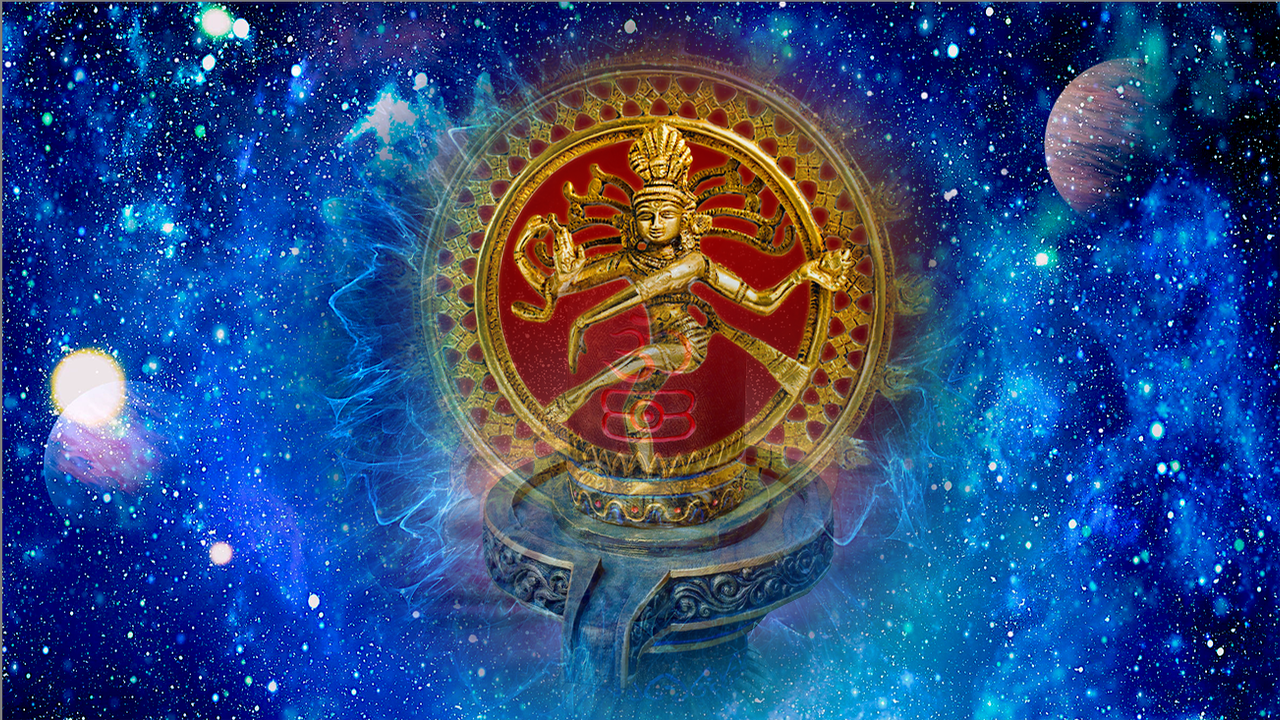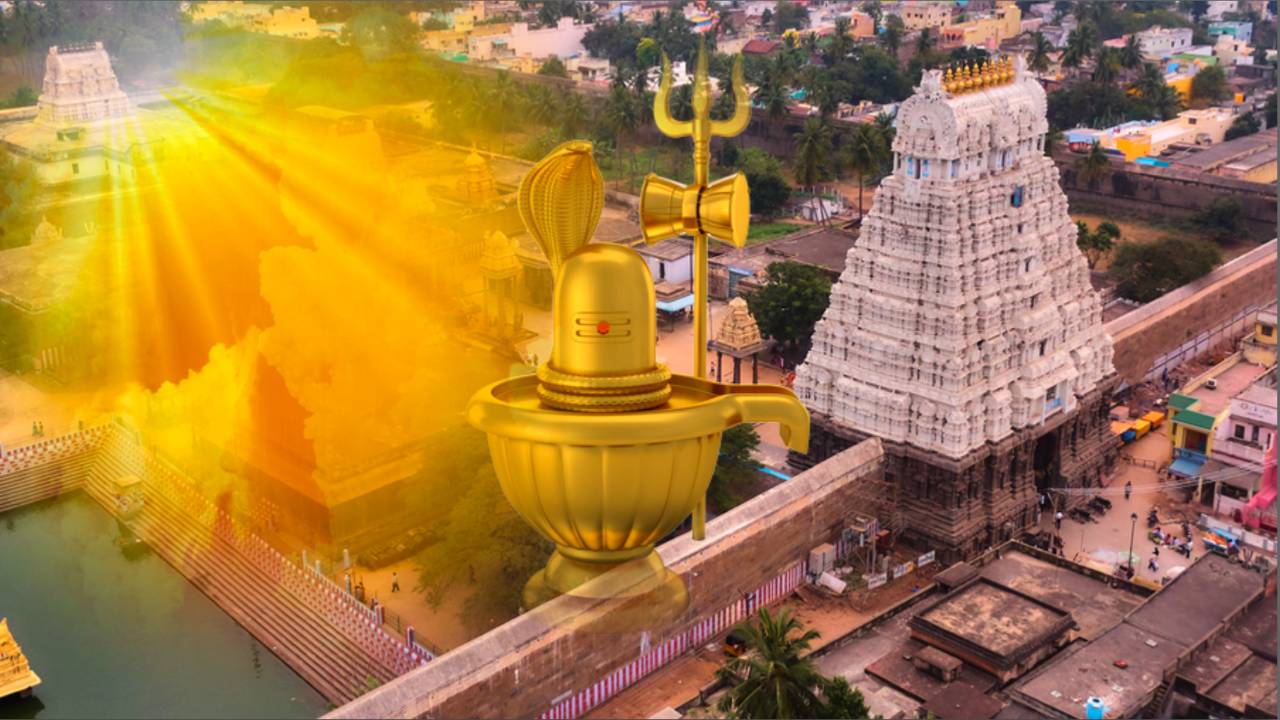THE EMPOWERED LIFE
Shiva's Cosmic Dance: The Tandava

Maha Shivaratri unfolds in a tapestry of multiple symbolisms. At their core, they invite us to transcend the shadow side of our souls and rent the veils of our spiritual ignorance. It is a sacred night dedicated to achieving profound inner stillness and an immersive depth in meditation. This is the night when the divine energies of consciousness and vitality—the sacred union of Shiva and Shakti—dance together in harmonious embrace. Would we be willing to enter their whirlwind of intimacy, beauty, and depth this night?
This year, our focus is on the mesmerizing cosmic dance of Shiva, the Tandava, urging us to join in the dance of life itself. Personally, confronting this idea is daunting; the mere thought of swaying to music in public fills me with dread, leaving me acutely self-conscious. Eleanor Roosevelt once wisely suggested that we should embrace something that terrifies us each day, a mantra I am striving to embody. Would I rise to the occasion? Well, the night is young.
Shiva's...
Ancient Tamil Culture Alive Today

During the vibrant harvest festival of Pongal, the air in Tamil Nadu buzzes with excitement as a rich tapestry of local events unfolds, celebrating the deep spiritual heritage of the region. Amidst the joyful festivities, one highlight stands out: a mesmerizing dance performance that brings to life the powerful deities of Shiva and Shakti, captivating audiences with its grace and fervor. Devotion to Shiva as a personal God as well as being identified with the Absolute Reality has endured in this part of India from the earliest of times.
Tamil culture is one of the oldest living traditions in the world, boasting a remarkable history that may stretch back between 2,500 to 3,000 years or even further, as suggested by compelling archaeological evidence. Ancient artifacts hint at a heritage that could be even more venerable, resonating with the echoes of a civilization that has thrived through the ages. The culture cannot be separated from its spirituality, nor spirituality from its cultur...
Chanting To Calm The Monday Effect

Recent evidence suggests that heart attacks are more common on Mondays; however, this effect is modest, as most heart attacks still occur on other days. More concerning is the fact that today, women—over 60 million Americans—are more susceptible to cardiovascular diseases than men.
What I want to offer you today is a form of prayer that can help you ease into your Monday. This type of prayer involves chanting, which is a traditional practice. Since chanting has a proven track record of improving circulation and can help manage blood pressure and stress, it serves as a valuable tool for wellness and self-care.
In Hindu astrology, Monday is known as Soma Vāra, which means "moon day," as it is associated with the moon. Lord Shiva is also linked to the moon; one of his epithets is Chandra Śekhara, meaning "the one who wears the moon in his hair." Meditating on Shiva on Mondays can promote calmness, emotional balance, and personal growth.
The set of mantras chanted for you in the medita...
Starting Our Shiva Sadhana

At the core of our approach—my own included—lies the balance between Shiva and Shakti. Even if you haven't engaged in many practices yet, I will provide valuable insights during our Tantric Shiva Retreat. The focus is not on accumulating more knowledge; rather, it is about delving deeply into the mysteries of Shiva with what we already know.
Some of our students are familiar with certain practices, such as initiation mantras. To enhance our experience, we can revisit and refresh our understanding of the mudras associated with these mantras, which may have been forgotten. These initiation mantras will serve as the foundation for our development. Shiva Upasana that we can deepen over time.
In many ways, our retreat is intended to serve as a launch point for a new approach to spirituality, particularly the mystery of Shiva. That's why I mentioned to everyone that, even if you haven't prepared, it's still important to be present. However, the truth is that even those who have prepared ma...
Begin Your Journey Into Shaivism

A mentor, whom I greatly respect, once told me that the deeper aspects of spirituality, particularly contemplation, are not for show. For me, the practices of Shaivism are deeply personal and I engage them with passion and regularlity.
The holy mystery that we approach as Shiva, the "kind one," is what Rudolf Otto aptly termed "mysterium tremendum."
While we might think we know what Shiva means, this familiarity can be comfortable; however, such comfort is incongruous with a mysterium tremendum. At the very least, while we may begin with some sense of comfort, there are aspects of this holy mystery that lie beyond what is familiar and comforting.
Embarking on a journey to seek Shiva involves asking: What does this mean? What does it entail? Much depends on the sadhaka (the seeker) and the upasaka (the practitioner). We are all different, with diverse interests and varying attention spans.
Not everyone feels the same way simultaneously. So, what does it mean to explore this jour...


